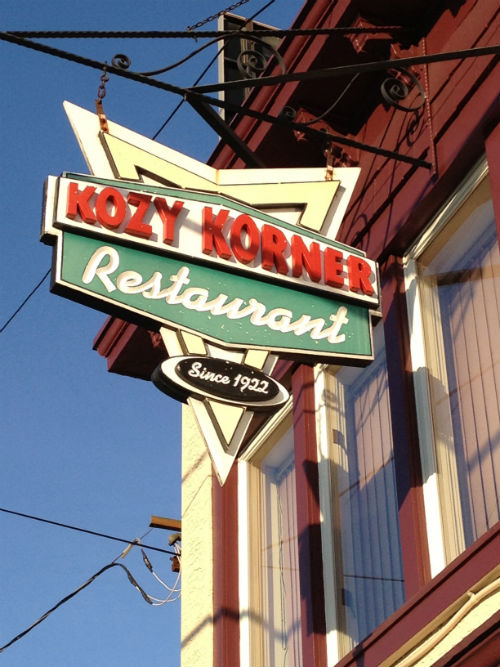
Until recently, I had never lived in a city without a subway.
I have lived, worked and commuted among the masses in Buenos Aires, London, New York, Chicago, Los Angeles and Washington, DC.
I now live in Delaware.
One year ago, I spoke to a friend Lisa Gans who is also an attorney, and who, like me, has spent much of her career on international issues, and living abroad. She explained that she had a new job at DCPNI. She shared with me the vision of Fuse Corps and encouraged me to apply. Her passion sparked my interest. I did my own investigation. I knew I wanted to contribute more directly to solving problems here in the U.S. My career has been focused on international issues. I had never worked in government. I read on the website; "We believe in the power of public and private sector collaboration," and "Fuse Corps enlists entrepreneurial professionals to tackle the nation's most pressing problems through a one-year fellowship with a visionary governor, mayor or local coalition." I caught the spark, and applied.
After applying to Fuse Corps I was given several options. Two of which were in California, and one of which was in Delaware. I did my research on the different placements and possibilities.
What I learned was that Delaware Governor Jack Markell understood that education is related to global economic outcomes. He understood that if we, as a nation, are going to compete effectively in the global economy, we need to prepare our students to be competitive in that global economy. In particular in Delaware, a focus on science, technology, engineering and math (STEM) education, and world languages were part of this strategy. I liked that there were bi-lingual Mandarin Chinese language programs from kindergarten in Delaware. Having studied international economics and international relations, this global thinking hooked me. I thought, this man gets it, and I want to be involved. So I moved to Delaware!
When I arrived in Delaware, the smallest city I had ever lived in was Washington, DC. Wilmington, Del. is a city of 70,851.
When I first arrived, I was introduced to Paul Harrell, the Director of Public/Private Partnerships in the Department of Education. He suggested we have breakfast very early on a drizzly Fall morning at the Kozy Korner, a diner where people have been meeting for close to 100 years. I learned that Paul had been in business for three decades, and more recently had served as a teacher before joining the Department of Education. I also learned that he was passionate about early childhood education and seemed to know everyone in the entire state. In the first few days and weeks I was here, through a myriad of introductions, I learned from Paul how much was accomplished in Delaware through community support.

Six months into this fellowship I am learning a lot about education and government. I have been charged with two strategic projects within the Department of Education, both public/private partnerships. I am directing the Delaware STEM Council. Created in 2010 by Governor Jack Markell, the STEM Council is a public-private partnership that brings together educators and administrators from K12, higher education, government officials and members of the business community.
The council is co-chaired by an innovative leader in education, and an innovative leader in the private sector. Judson Wagner, a physics teacher for 15 years and Supervisor of STEM, CTE and Instructional Technology for the Brandywine School District and Dr. Teri Quinn Gray, New Product Commercialization Manager with DuPont Crop Protection in Newark, Del. I also work closely with April McCrae, Education Associate, Science Assessment/STEM Coordinator in the Department of Education. In my first six months we have worked hard together on internal/structural development implementing systems and routines and drafting bylaws. The council has created an inventory of STEM programs in Delaware, created a rubric for evaluating STEM education programs, identified STEM contacts in all Delaware public schools and prioritized and narrowed the focus of activities demanding the council's full attention.
I have also been charged with implementing a plan for a communication effort to better promote the good things that are happening in Delaware public schools. Delaware was ranked third in the nation in improved math, reading and science achievement from 1992 to 2011. The aim of the initiative is to communicate both the unique strengths of individual public schools and the overall forward momentum of Delaware's public education system. This effort is a partnership between the Delaware Economic Development Office and the Delaware Department of Education.
Trouble-making
Recently at the STEM Council's quarterly meeting attended by the Governor, Co-Chair Dr. Teri Gray introduced me with a smile as, "a trouble-maker." She said, "I have been stirring things up," and thanked me for the work I have been doing. It was at that moment that I thought to myself, I think I am doing something right! I am applying the lessons that I have learned from Fuse Corps about what it means to be ''appropriately disruptive," in our spaces, to be a spark, to be an influencer that is a catalyst to create change.
Shortly after being called a troublemaker, I went to Washington, DC for the Fuse Corps Leadership Institute. Fuse Corps fellows meet three times during the year of their placement for training. At this training, the inaugural class of Fuse Corps Fellows met the new class of Fuse Corps Fellows. I realized as the week went on, that there was at least a little bit of troublemaker in every single one of us. A diverse group of accomplished mid-career professionals gathered together from a spattering of cities across the U.S, yet we had an intangible sameness. Everyone had a tenacious commitment to make a difference. Everyone had that spark.

During the week of leadership training we attended the White House Forum on Cross-Sector Leadership. Fuse Corps faculty and fellows led a Fuse Works 'design lab' workshop. The trouble-making continued in concert with cross-sector leaders and government officials. David Viotti, Chief Learning Officer for Fuse Corps explained that we would be 'hacking' the space in the White House Executive Office Building for the design lab. We did. With post-it note rapid proto-typing to collaboratively innovate, and improv exercises to nurture a growth-mindset, we began creating inventive ways to cultivate cross-sector leadership in our nation.
Why Be a Troublemaker?
There was a moment in time, that I can pinpoint, that landed me in my new home, Delaware. A few words convinced me that is was a good idea to move from my friends in Washington, DC to a city that I have never lived in, where I knew no one, and didn't have a subway system. On the radio I heard President Barack Obama say something like this: 'Our nation's greatest inexhaustible renewal resource is our American ingenuity. ' Hearing those words I decided that I want my human ingenuity to be part of a community of change that is willing to be a catalyst of innovation in a time when our country so desperately needs it.